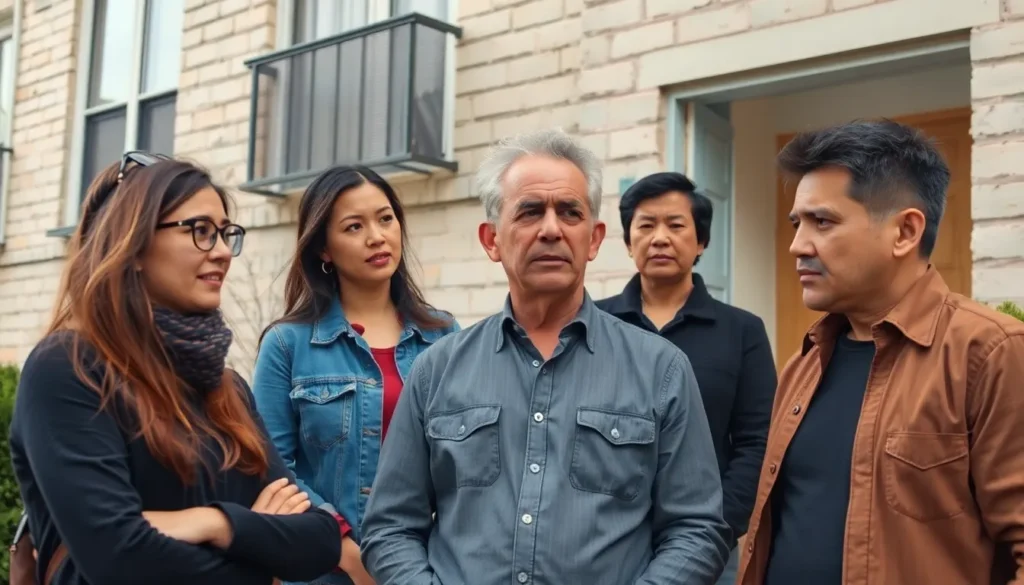Navigating the rental landscape in Indiana can feel like an obstacle course designed by a mischievous toddler. From security deposits to procedures for eviction, understanding tenant rights should be as straightforward as reminding your neighbor that leaving their trash can on the curb for a week isn’t exactly the norm. In this guide, you’ll discover the ins and outs of Indiana tenant rights, empowering you with the knowledge you need to stand your ground, without losing your cool (or your sanity). Ready to jump into the nitty-gritty? Let’s go.
Table of Contents
ToggleUnderstanding Your Rights as a Tenant in Indiana

In Indiana, tenants have a variety of rights designed to protect them and ensure fair treatment. These rights cover everything from the condition of the property to the specifics of the lease agreement. Understanding these essentials is crucial for anyone renting in the Hoosier state.
First, it’s important to know that tenants cannot be discriminated against based on race, religion, gender, or familial status when seeking housing. This means landlords must adhere to fair housing laws, making sure that rental opportunities are available to all who apply.
Also, tenants have the right to a livable space. This isn’t just a matter of comfort: it’s a legal expectation. Indiana law stipulates that all residential rental properties must meet basic health and safety standards. If a unit doesn’t hold up to these standards, tenants are entitled to request repairs and improvements, after all, no one wants to live in a moldy, dilapidated home.
Key Legal Protections for Tenants
Security Deposits: What You Need to Know
Tenants often find themselves scrambling to understand the intricacies of security deposits. In Indiana, landlords can charge a security deposit, but it cannot exceed one month’s rent. This deposit is meant to cover potential damages beyond normal wear and tear, but it’s crucial to document the apartment’s condition when moving in, pictures are your best friend here.
Upon moving out, landlords have 45 days to return the security deposit, minus any legitimate deductions. Make sure to receive an itemized list of these deductions: if you detect any discrepancies, don’t hesitate to address them with your landlord.
Lease Agreements and What They Should Include
A solid lease agreement is your safest bet when renting. Indiana law mandates certain elements in a lease, which should clearly outline the duration of the lease, rental amounts, and a breakdown of responsibilities for both parties. If you decide to rent, scrutinize the lease to ensure it covers all necessary details and protects your interests. Taking the time to review the lease could save you from headaches down the line.
Maintaining a Safe Living Environment
Responding to Tenant Complaints: Landlord Responsibilities
Living in a rental should feel like a retreat, not a constant saga of repairs and complaints. Indiana landlords are required to maintain the property in a livable condition. This means responding promptly to tenant complaints about repairs or safety issues. If your heater is on the fritz in the middle of winter or there’s a water leak, inform your landlord right away. They have a legal obligation to address these concerns in a timely manner.
If your landlord fails to act, tenants have additional rights that allow them to seek remedies. Just remember, documenting your communications can be a lifesaver, it’s essential for proving your case if things escalate.
Eviction Process in Indiana
Defending Against Unlawful Eviction
Eviction is a word that sends shivers down many spines. But, understanding the legal eviction process in Indiana can provide some peace of mind. It’s important to note that landlords cannot simply toss tenants out without following the proper legal procedures. They must send a written notice to vacate, allowing tenants the chance to respond or rectify the situation.
If the matter is escalated to the courts, tenants have the right to defend themselves against unlawful evictions. Gathering evidence, such as a history of timely rent payments or prior communications about repairs, can fortify your case. Armed with this knowledge, you’re far less likely to end up on the wrong end of an eviction.
Resources for Tenants in Indiana
When in doubt, resources are your best ally. Various organizations and legal aid services provide assistance to Indiana tenants. For instance, the Indiana Legal Services offers free or low-cost legal help for those who meet specific income criteria. Also, many local housing authorities can guide tenants through the complex maze of rental laws.
Online platforms also provide valuable information on tenant rights, including up-to-date legal resources and community groups offering support. Familiarizing yourself with these resources can be immensely helpful should issues arise during your rental experience.













